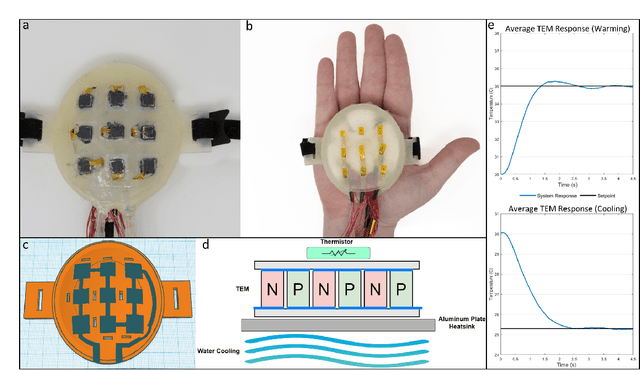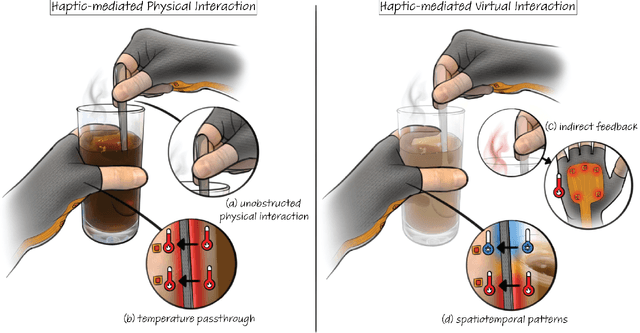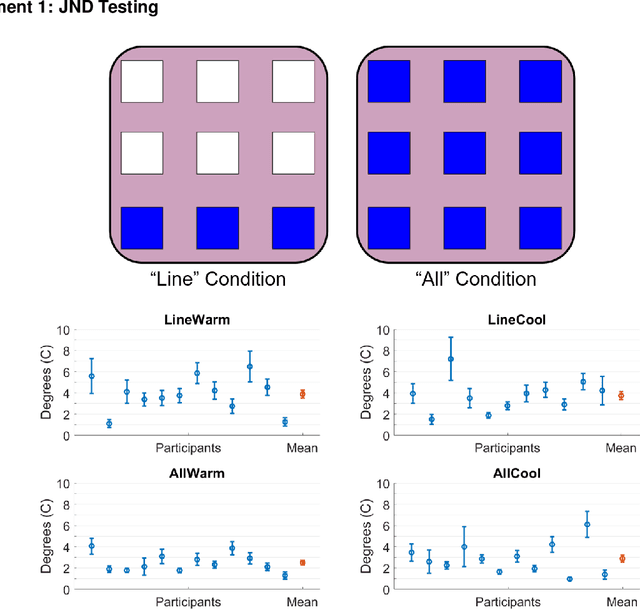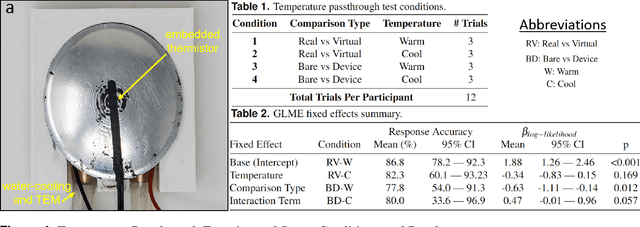Nilanjan Sarkar
GSAC: Leveraging Gaussian Splatting for Photorealistic Avatar Creation with Unity Integration
Apr 17, 2025Abstract:Photorealistic avatars have become essential for immersive applications in virtual reality (VR) and augmented reality (AR), enabling lifelike interactions in areas such as training simulations, telemedicine, and virtual collaboration. These avatars bridge the gap between the physical and digital worlds, improving the user experience through realistic human representation. However, existing avatar creation techniques face significant challenges, including high costs, long creation times, and limited utility in virtual applications. Manual methods, such as MetaHuman, require extensive time and expertise, while automatic approaches, such as NeRF-based pipelines often lack efficiency, detailed facial expression fidelity, and are unable to be rendered at a speed sufficent for real-time applications. By involving several cutting-edge modern techniques, we introduce an end-to-end 3D Gaussian Splatting (3DGS) avatar creation pipeline that leverages monocular video input to create a scalable and efficient photorealistic avatar directly compatible with the Unity game engine. Our pipeline incorporates a novel Gaussian splatting technique with customized preprocessing that enables the user of "in the wild" monocular video capture, detailed facial expression reconstruction and embedding within a fully rigged avatar model. Additionally, we present a Unity-integrated Gaussian Splatting Avatar Editor, offering a user-friendly environment for VR/AR application development. Experimental results validate the effectiveness of our preprocessing pipeline in standardizing custom data for 3DGS training and demonstrate the versatility of Gaussian avatars in Unity, highlighting the scalability and practicality of our approach.
Immersive and Wearable Thermal Rendering for Augmented Reality
Mar 27, 2025



Abstract:In augmented reality (AR), where digital content is overlaid onto the real world, realistic thermal feedback has been shown to enhance immersion. Yet current thermal feedback devices, heavily influenced by the needs of virtual reality, often hinder physical interactions and are ineffective for immersion in AR. To bridge this gap, we have identified three design considerations relevant for AR thermal feedback: indirect feedback to maintain dexterity, thermal passthrough to preserve real-world temperature perception, and spatiotemporal rendering for dynamic sensations. We then created a unique and innovative thermal feedback device that satisfies these criteria. Human subject experiments assessing perceptual sensitivity, object temperature matching, spatial pattern recognition, and moving thermal stimuli demonstrated the impact of our design, enabling realistic temperature discrimination, virtual object perception, and enhanced immersion. These findings demonstrate that carefully designed thermal feedback systems can bridge the sensory gap between physical and virtual interactions, enhancing AR realism and usability.
MicroXercise: A Micro-Level Comparative and Explainable System for Remote Physical Therapy
Aug 06, 2024Abstract:Recent global estimates suggest that as many as 2.41 billion individuals have health conditions that would benefit from rehabilitation services. Home-based Physical Therapy (PT) faces significant challenges in providing interactive feedback and meaningful observation for therapists and patients. To fill this gap, we present MicroXercise, which integrates micro-motion analysis with wearable sensors, providing therapists and patients with a comprehensive feedback interface, including video, text, and scores. Crucially, it employs multi-dimensional Dynamic Time Warping (DTW) and attribution-based explainable methods to analyze the existing deep learning neural networks in monitoring exercises, focusing on a high granularity of exercise. This synergistic approach is pivotal, providing output matching the input size to precisely highlight critical subtleties and movements in PT, thus transforming complex AI analysis into clear, actionable feedback. By highlighting these micro-motions in different metrics, such as stability and range of motion, MicroXercise significantly enhances the understanding and relevance of feedback for end-users. Comparative performance metrics underscore its effectiveness over traditional methods, such as a 39% and 42% improvement in Feature Mutual Information (FMI) and Continuity. MicroXercise is a step ahead in home-based physical therapy, providing a technologically advanced and intuitively helpful solution to enhance patient care and outcomes.
A Novel Loss Function Utilizing Wasserstein Distance to Reduce Subject-Dependent Noise for Generalizable Models in Affective Computing
Aug 17, 2023



Abstract:Emotions are an essential part of human behavior that can impact thinking, decision-making, and communication skills. Thus, the ability to accurately monitor and identify emotions can be useful in many human-centered applications such as behavioral training, tracking emotional well-being, and development of human-computer interfaces. The correlation between patterns in physiological data and affective states has allowed for the utilization of deep learning techniques which can accurately detect the affective states of a person. However, the generalisability of existing models is often limited by the subject-dependent noise in the physiological data due to variations in a subject's reactions to stimuli. Hence, we propose a novel cost function that employs Optimal Transport Theory, specifically Wasserstein Distance, to scale the importance of subject-dependent data such that higher importance is assigned to patterns in data that are common across all participants while decreasing the importance of patterns that result from subject-dependent noise. The performance of the proposed cost function is demonstrated through an autoencoder with a multi-class classifier attached to the latent space and trained simultaneously to detect different affective states. An autoencoder with a state-of-the-art loss function i.e., Mean Squared Error, is used as a baseline for comparison with our model across four different commonly used datasets. Centroid and minimum distance between different classes are used as a metrics to indicate the separation between different classes in the latent space. An average increase of 14.75% and 17.75% (from benchmark to proposed loss function) was found for minimum and centroid euclidean distance respectively over all datasets.
 Add to Chrome
Add to Chrome Add to Firefox
Add to Firefox Add to Edge
Add to Edge